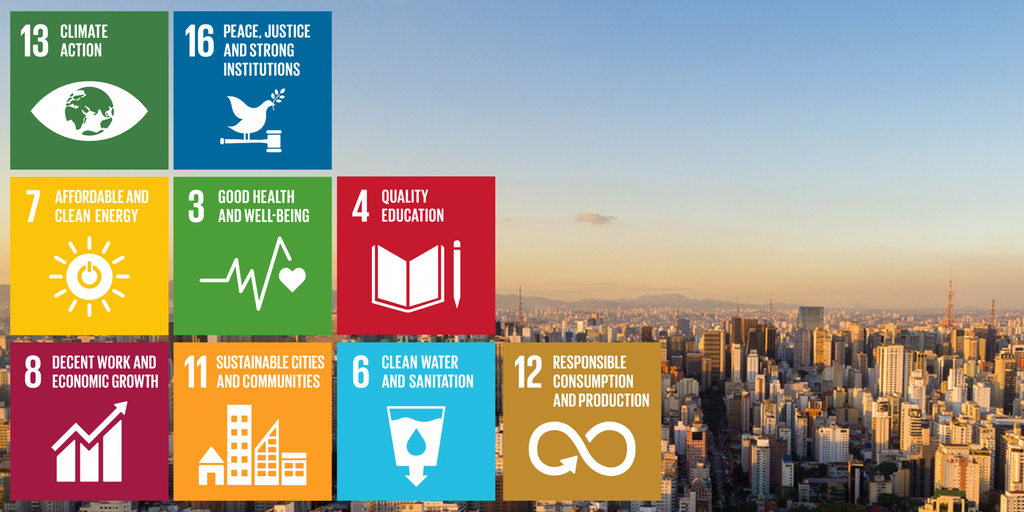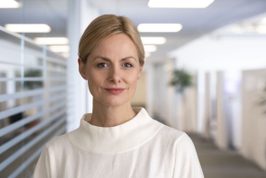
The colorful boxes, representing the Agenda’s 17 development goals, pop up in conferences, in offices, on the lapel of suits, in company reports, on websites, signaling “we’re on the case”. But are we really?
Sustainability used to be about the economy, the environment, the people, and how to make these three dimensions align. It has always sparked perpetual discussions on which dimension should take priority. Being foremost seen as an integral part of the economy, companies have been urged to at least consider people and planet while making profit.
Agenda 2030 on the other hand is like a well assorted candy jar with something to everyone’s taste and preferences. The upside: the Agenda is hugely popular and has managed to explain sustainability in all its complexity to a wider audience, inviting anyone who wants to join in. The downside: it’s hard to understand to what extent all the contributions made, by private and public actors, are getting us any closer to achieving the Agenda 2030 goals.
When developing AddSecure’s sustainability strategy, it seemed inevitable to do so without any reference to Agenda 2030. And in doing so, the Agenda turned out to be far more useful than merely as a tool for communication.
Understanding our role: the need for smart IoT solutions
Technology plays an essential role in achieving the global goals, in particularly IoT technology. According to the World Economic Forum[1], 70% of the Agenda 2030 targets can be directly supported by technology applications, where Internet of Things (IoT) plays a role in 33% of the technological applications mapped.
At AddSecure we already had a good understanding of IoT solutions’ environmental benefits. In general, connected devices allow for remote monitoring and system upgrades that enable a more optimized use of resources. On top of that, our transport tracking devices help cut emissions by optimizing the transports of goods. Our smart grid solutions help expand infrastructure and upgrade technology for modern and sustainable energy services for all. Our connected, sensor based IoT solutions for remote monitoring and configuration help secure water supply and guarantee water quality.
What Agenda 2030 demonstrates is that the impact of IoT solutions goes beyond environmental benefits. Our IoT technology, when used to support human interactions, can increase individual well-being and societal welfare. Our smart monitoring and wearables offer access to improved and affordable health-care services that combine human care with reliable and safe technology. Tailored solutions based on connected personal alarms and training help prevent incidents happen, providing safe, non-violent, and effective working and learning environments.
On top of that, Agenda 2030 being a smorgasbord (well, we do have our roots in Sweden) of challenges waiting to be solved, it is a pretty good map of where the opportunities of tomorrow are. As a fast-growing company, always on the look-out for the “smart new”, the Agenda helps us in informing us on where to go next.
Spotting the gap: the need for secure IoT solutions
While working with Agenda 2030, we have come to realize that there’s a gap that needs to be addressed to achieve all the good intentions. The world does not only need smart IoT solutions, but it also needs smart and secure IoT solutions.
As sensor-based and internet-connected devices multiply, they will handle even more societal, life, and business-critical applications. This makes it more important than ever to handle data and communications in a secure way. The aspects of cyber security and safe data are however largely absent from the Agenda 2030 framework. Was cyber security not an issue in 2015?
Security breaches were certainly a concern back in 2015, we would know, as AddSecure has been in the business of secure communications since the 1970’s. But we’ve seen a change that has rapidly grown in the last few years.
Where secure communications used to be an issue for high-security industries, such as military facilities and nuclear power plants, or an aspect in highly regulated areas, such as alarm and rescue services, it has grown to become an essential aspect whenever speaking of connected devices.
If we didn’t learn the lesson with the hacked coffee machine or the hacked pacemaker, this last summer’s event where 200 businesses were affected by a ransomware attack, shutting down more than 800 supermarkets in Sweden, probably did the trick. Cyber security is no longer an issue for life-critical appliances only. Cyber security and safe data are critical for any business.
Happy birthday Agenda 2030 – here’s our gift to you!
Dear Agenda 2030, at AddSecure we aim to contribute to society’s sustainable transformation, by securing IoT solutions in a connected world.
You have helped us map out where our solutions contribute to your goals today, and where smart and secure solutions are needed tomorrow (rather sooner than later, we get that). You’ve helped us explain to our stakeholders what we see as our mission, and define a North when moving forward.
As a thank you, when speaking about you, we’ll do our best to continue our focus on helping to achieve your goals. We’ll try to stay away from meddling with LED lamps, hybrid office spaces and travel policies when showing our efforts (not that it’s not important, but there are other frameworks to do just that). We’ll do our best to quantify the impact of our solutions, so we can accurately judge the value of our proposal.
We’ll also try to fill the knowledge gap on why smart solutions aren’t enough, and why secure IoT solutions are needed to prevent further troubles in the future. Happy birthday!
AddSecure’s Sustainability Report
To get a snapshot into how AddSecure has been, and plans to continue making a positive difference in sustainable development, download for free and read our 2021 Sustainability Report
